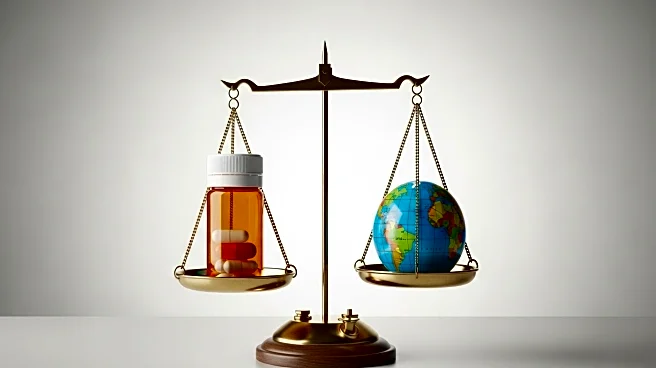What's Happening?
President Trump is pushing for pharmaceutical companies to increase drug prices in other countries to offset reductions in the United States. Commerce Secretary Howard Lutnick announced that the administration aims to implement 'Most Favored Nation' pricing, ensuring that U.S. prices match those in peer countries. This strategy is part of a broader effort to reduce the financial burden on American patients, who currently pay significantly more for medications compared to other nations. The initiative, however, faces legal challenges and skepticism regarding its feasibility and potential international repercussions.
Why It's Important?
The proposal could significantly impact the pharmaceutical industry and international trade relations. If successful, it may lead to reduced drug costs for U.S. consumers, benefiting Medicare and Medicaid programs. However, the strategy could strain diplomatic ties and lead to increased drug prices in other countries, potentially affecting global access to medications. The pharmaceutical industry has expressed concerns about the policy's implications on innovation and market dynamics, warning that it might undermine the U.S.'s leadership in drug development.
What's Next?
The administration's plan may face legal challenges and resistance from international partners. Pharmaceutical companies might respond by adjusting their pricing strategies globally, potentially leading to higher costs in other markets. The outcome of this initiative could influence future U.S. healthcare policies and international trade agreements.










